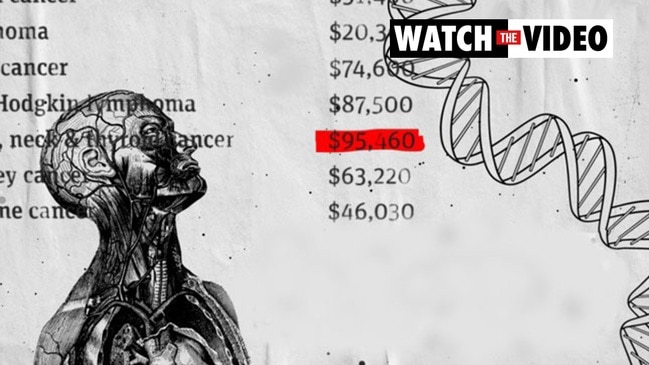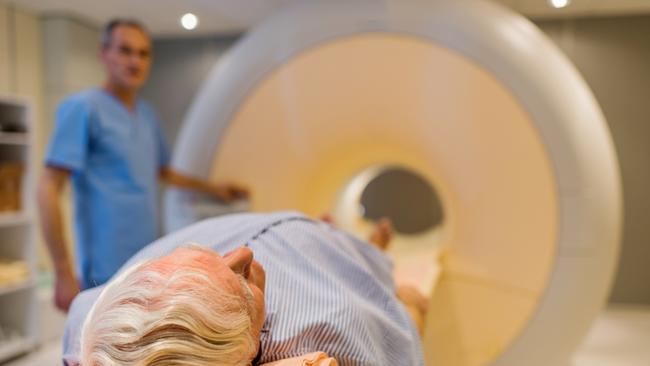One in four cancers will never harm or kill new research finds
Tens of thousands of Australians with harmless cancers are being sickened through unnecessary treatments, but medical practice for the disease is unlikely to change.

Health
Don't miss out on the headlines from Health. Followed categories will be added to My News.
About 11,000 cancers in women and 18,000 in men are being over diagnosed in Australia each year subjecting people to unnecessary surgery and chemotherapy that can make them sterile and very ill.
These people would never have experienced symptoms or harm had the cancer remained undetected and untreated new research from Bond University has found.
An estimated 11–19 per cent of breast cancer diagnoses, 42 per cent of prostate cancers, 42 per cent of renal cancers, 73 per cent of thyroid cancers, and 58 per cent of melanomas were over diagnosed the research found.
This amounts to around 18 per cent of cancer diagnoses in women and about 24 per cent of diagnoses in men the study published online today by the Medical Journal of Australia has found.

Over diagnosis of breast cancers was due to the national breast screening program, while prostate cancers and melanoma were over diagnosed due to extensive screening by doctors, Bond University Professor Paul Glasziou said.
Non harmful renal cancers were being detected when patients had abdominal scans for unrelated reasons, the study found.
And over diagnosis of thyroid cancer was related to doctors excessively investigating why patients had abnormal thyroid function tests.
“Different approaches to reducing rates of over diagnosis are therefore required for different cancer types,” Professor Glasziou said.
The study said severe harm could result when people were diagnosed with cancers that would never kill them with evidence there was an increased suicide risk for men after being diagnosed with prostate cancer.
“Cancer treatments such as surgery, radiotherapy, endocrine therapy, and chemotherapy can cause physical harm, but the risks are considered acceptable if diagnosis is appropriate,” the authors said.
“When someone is unnecessarily diagnosed with cancer, however, they can only be harmed by treatment, not helped,” the authors of the study said.

Even though cancers may be over diagnosed it is likely to be hard to change medical practice with patients likely to insist on treatment and doctors fearful of law suits if the cancer progresses after not being treated.
Medical practice is changing with many prostate cancers now subject to a regular monitoring regime rather than surgery.
In January last year, UK researchers showed people with very early stage cancers had very high survival rates which the authors said provided further evidence of probable over diagnosis.
The five-year survival was 99 per cent for Stage 1 breast cancer, 100 per cent for Stage 1 prostate cancer, 100 per cent for Stage 1 melanoma, 89 per cent for Stage 1 kidney cancer, and 88 per cent for thyroid cancer of any stage.
MORE NEWS:
Charity raises money for better face masks for volunteer fire fighters
How Aussie doctor diagnosed and beat his own cancer
Coronavirus sparks global hospital chaos
In South Korea the number of thyroid cancer diagnoses was reduced by one-third by discouraging ultrasound screening, the study said.
Several countries had reduced prostate cancer incidence and over diagnosis with more targeted and less frequent prostate screening.
The authors suggest the Australian Institute of Health and Welfare and state cancer registries could check whether increased test, incidence, or treatment rates were associated with no corresponding rise in mortality to detect emerging areas of over diagnosis.
Originally published as One in four cancers will never harm or kill new research finds
